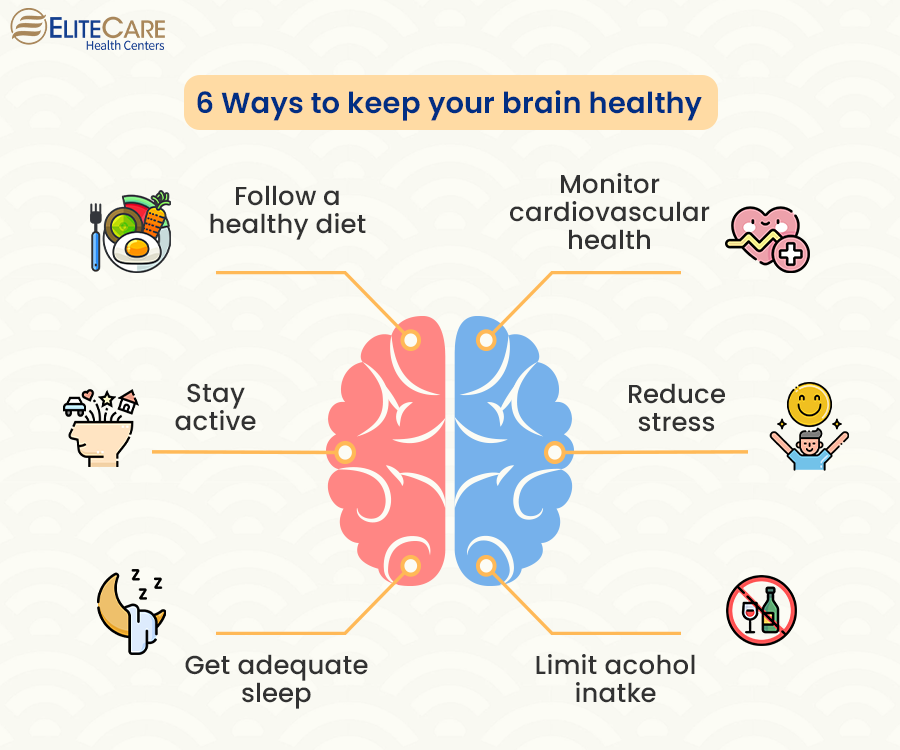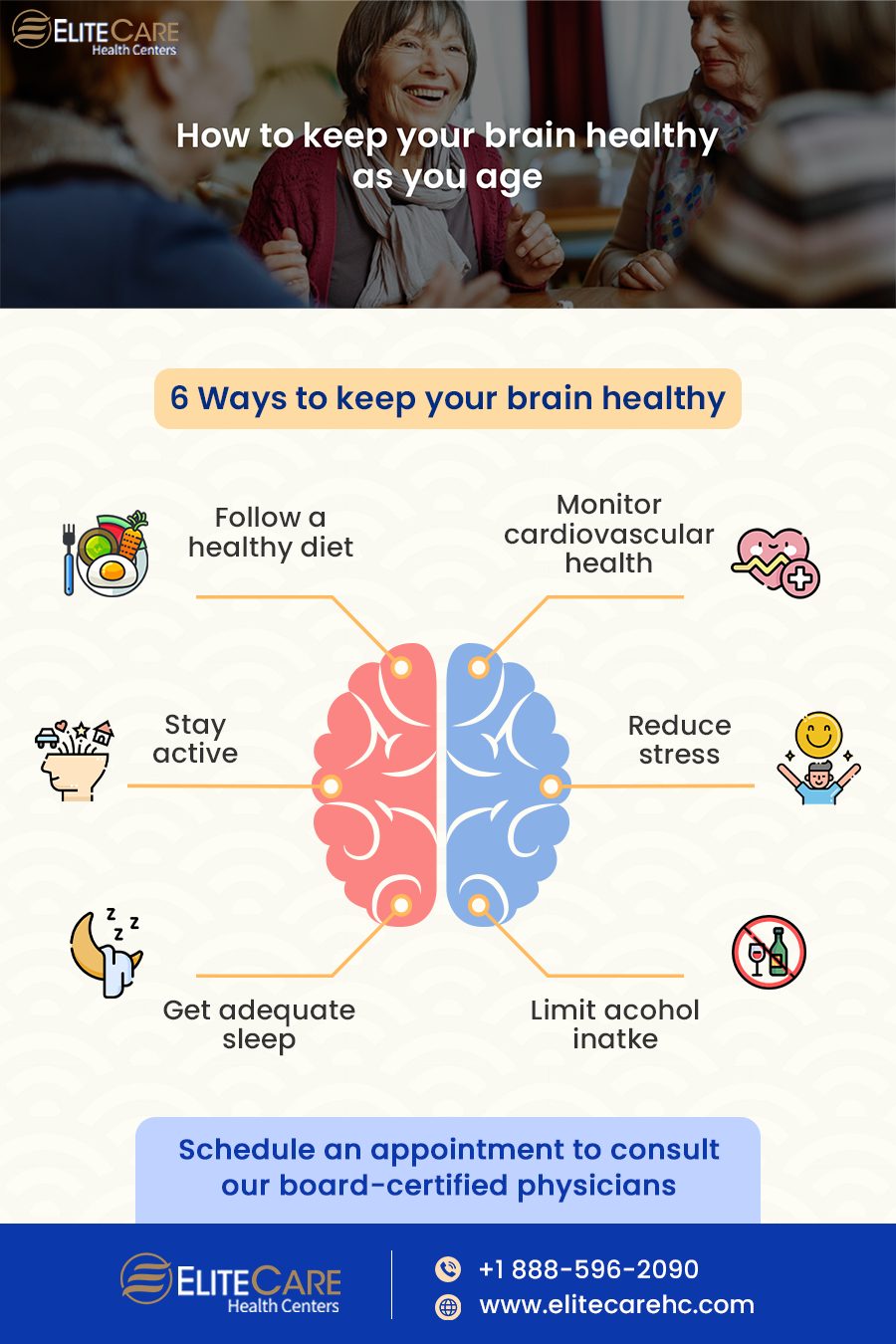
- Cognitive function: The ability to think, learn and remember
- Motor function: The ability to control movements, including maintain balance
- Emotional function: The ability to interpret and respond to emotions
- Tactile function: The ability to feel and react to sensations of touch that include pressure, pain, and temperature
Age-related changes like inflammation in the brain or brain shrinkage are some of the significant factors affecting brain health. While some factors affecting brain health, such as genetics or injuries, cannot be changed, some lifestyle changes may make a difference.
How Does the Brain Change with Age?
6 Ways to keep your brain healthy
Scientific research has suggested that the following lifestyle changes may lead to significant improvement in brain health. Let’s take a look!

Follow a healthy diet
Monitor cardiovascular health
Stay active
Reduce stress
- Make time for a walk, and spend some time outside, especially in nature.
- Write in a journal and pour out your thoughts or worries on paper.
- Practice mindfulness with meditation and yoga to help your body relax.
Get adequate sleep
While getting at least 7 to 8 hours of sleep per night is crucial, getting quality or ‘deep’ sleep is more important. Sleep deficits can hinder learning ability and impair cognitive performance. Also, the brain works like a library during sleeping hours. During this period, it processes all the information received during regular activities and archives them into one’s memory. Therefore, people who sleep for 5 to 6 hours a day are at a higher risk of suffering from cognitive decline with age.
In order to avoid sleep deprivation and insomnia, practice healthy sleeping habits and manage stress.
Limit alcohol intake
As people age, they tend to become more sensitive to the side effects of alcohol. However, staying away from alcohol or moderate intake can reverse some of these side effects.
Takeaway






